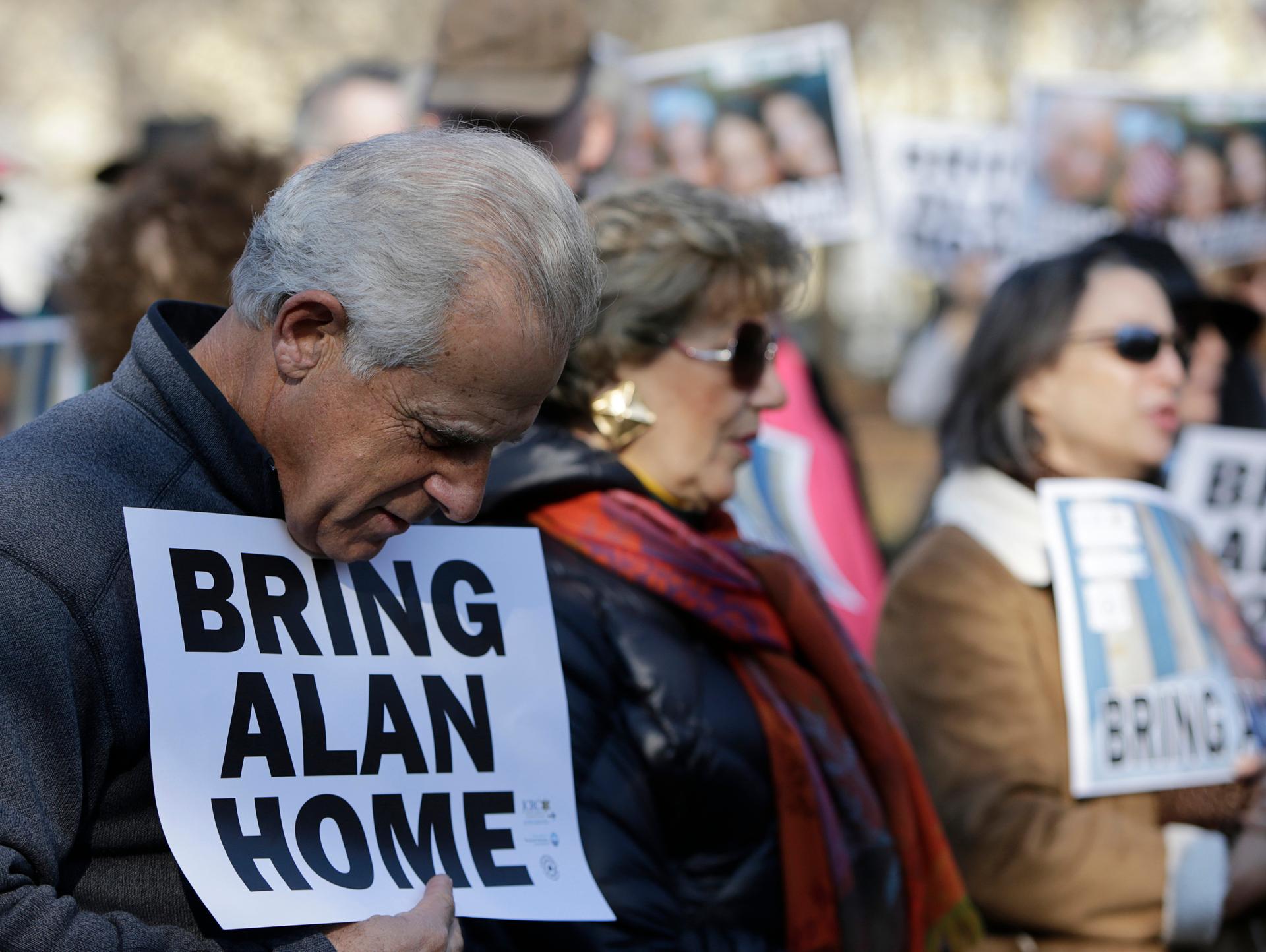After five years in a Cuban jail, an American contractor is ‘literally wasting away’
Demonstrators gathered for a rally for American detainee Alan Gross in Washington, DC, during December 2013.
Wednesday marked exactly five years that Alan Gross, a contractor for the US Agency for International Development, has been stuck in a Havana prison. His mental health is wobbling, and his family warns that hope of bringing him home intact is slipping away.
"Alan is resolved that he will not endure another year imprisoned in Cuba, and I am afraid that we are at the end," his wife, Judy Gross, said in a statement released on Wednesday. "After five years of literally wasting away, Alan is done. It is time for President Obama to bring Alan back to the United States now. Otherwise it will be too late.”
Peter Kornbluh, an author who has visited Gross in Havana several times, backs up his family's account of his situation. "He is extremely depressed and has suicidal tendencies," Kornbluh says. "His mental health is such that the Obama administration really does have to act fast and aggressively to get him out."

At the time of his arrest in 2009, Gross was in Cuba as part of the USAID's Cuba Democracy and Contingency Planning Program. It was a plan designed to create independent communication networks for Internet access, initially for Cuba's Jewish community.
"It's what's known as a 'democracy promotion program,' but it also has this contingency element to it and that is the more sinister and dark side of what Alan Gross was doing," according to Kornbluh, who wrote about Gross' travels in his new book, "Back Channel to Cuba: The Hidden History of Negotiations between Washington and Havana," co-authored with William LeoGrande.
That sinister side, Cubans argue, was really regime change. Cuban authorities charged Gross with espionage and smuggling satellite communications equipment to Cuba.
The Obama administration maintain that Gross has done nothing wrong, and that the Cuban government should simply release him.
"It is gravely disappointing, especially in light of its professed goal of providing Cubans with Internet access, that the Cuban government has not allowed Mr. Gross to return to his family where he belongs," State Department spokeswoman Marie Harf said in a statement released on Tuesday.
Many voices, including the New York Times editorial board, are calling for a prisoner swap, suggesting the White House exchange Gross for three convicted Cuban spies now in US prisons.
"An official dialogue with the Cubans that addresses their interests in getting their spies back, and our interest in getting Alan Gross out of this very difficult and precarious situation that he is in, would be well-served by talks," Kornbluh says.
But 55 years after Cuba's revolution, that's a proposition that is still too politically sensitive.
